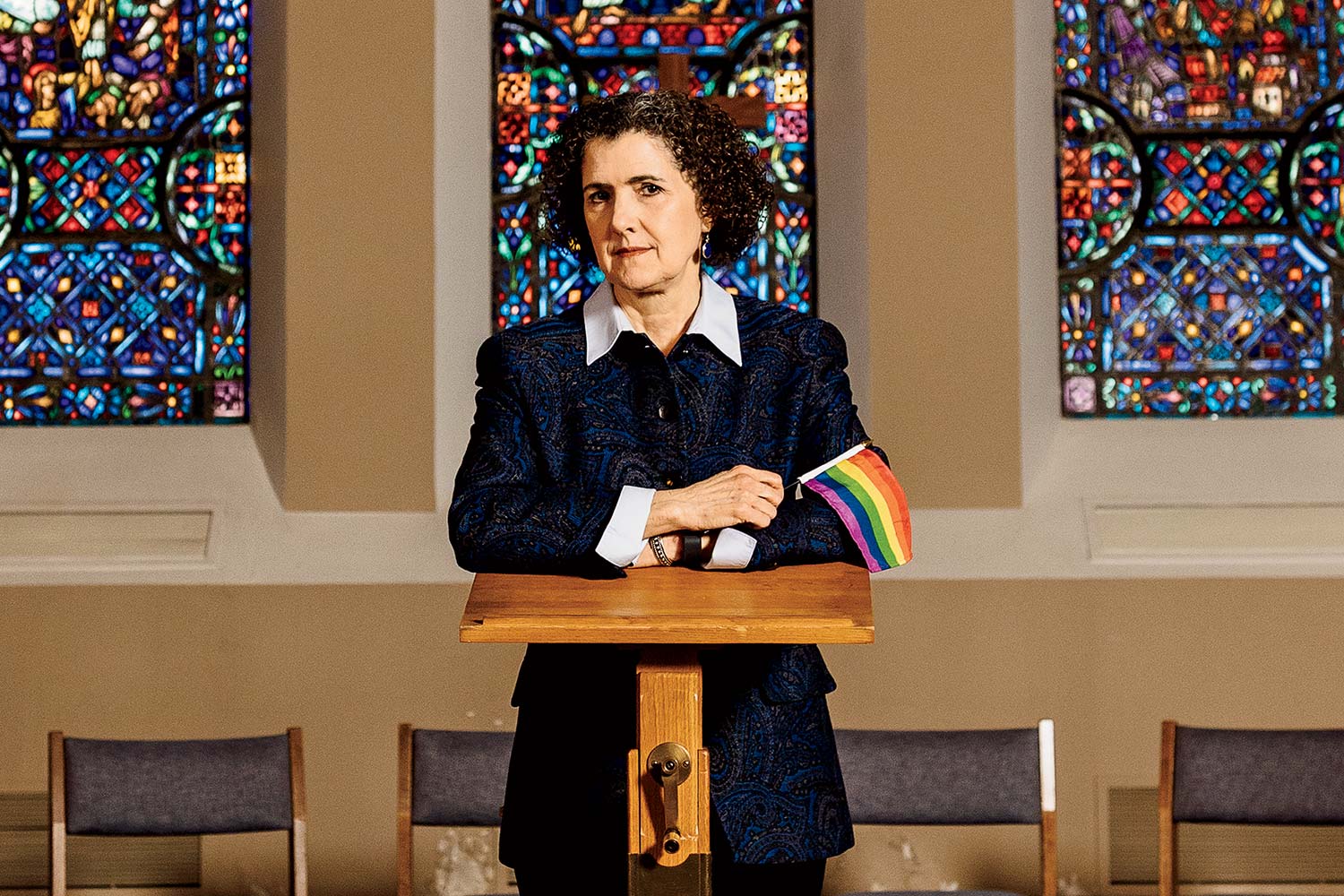At a recent United Methodist Church conference, delegates from around the world voted to ban ordaining LGBTQ people and performing same-sex marriages. What’s been the reaction at Garrett?
Our students are devastated. I was personally sickened. We’re a left-leaning school. We’re on the record as being inclusive. After the vote, our lobby and stairwells were rainbowed up. The denomination’s been arguing over these issues since 1972, and as you can imagine, many people are fed up. We’ve lost a lot of seminary students to other denominations.
What had church practices been before?
In our Book of Discipline, there’s an existing prohibition against “self-avowed practicing homosexuals” being ordained, and clergy are forbidden to officiate at same-sex weddings. But actual practices vary. We’re divided into conferences, which are like dioceses. Some conferences have an understanding that we’re not asking the question [about a clergy candidate’s sexual orientation]. Other conferences will point-blank ask it. In the Chicago area, our bishop’s position is inclusivity.
So what changes, exactly?
If a clergyperson violates the prohibitions, they can be suspended for a year without pay. If they do it a second time, they will be defrocked.
What was the mood like where the vote took place?
Very tense. People have likened it to the 2016 presidential election. It came down to two plans: the One Church Plan, which offered a way for churches to make their own decisions, and the Traditional Plan, which said, “We want a very strict enforcement of The Book of Discipline.” Probably two-thirds of the U.S. delegates voted for the One Church Plan. But in the U.S., we’ve been steadily losing members for a long time, while United Methodists outside the country, in places where there’s a much more conservative sensibility, have been growing. So the Traditional Plan won.
What happens now?
There are aspects of the Traditional Plan that are considered unconstitutional and have been referred to the church’s Judicial Council. So, many feel that this is not over by a long shot. I’m not prepared to leave the denomination, though we’ll see what emerges. If there is a split, I’ll have to go with the left side. My deepest understanding of what it means to be a person of faith is to love our neighbors, and love doesn’t mean excluding people.




